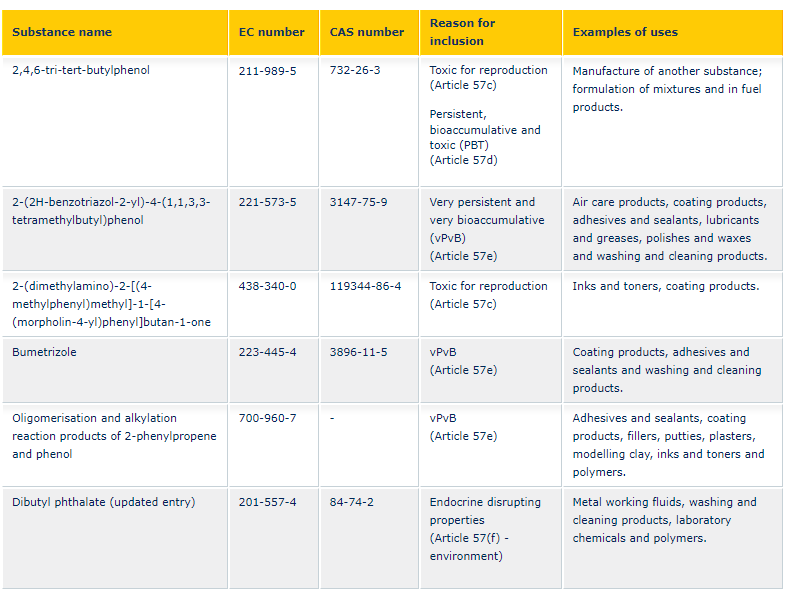The European Chemicals Agency (ECHA) has taken a significant step by adding five new chemicals to its Candidate List. This update, including substances toxic for reproduction and those with persistent and bioaccumulative properties, raises concerns across various industries and prompts a closer look at the potential impacts on products we use daily.
Chemical Profiles and Applications: Insights into the Newly Listed Substances
Examining the properties of these chemicals reveals a complex landscape. From reproductive toxicity to high persistence and bioaccumulation, these substances have diverse characteristics. Found in commonplace items such as inks, toners, adhesives, and cleaning products, understanding their prevalence and implications becomes crucial for businesses and consumers alike.
Dibutyl Phthalate Update: Acknowledging Endocrine Disruption in the Environment
The revision of the Candidate List entry for dibutyl phthalate introduces a new dimension – its recognized endocrine-disrupting properties for the environment. This alteration not only adds another layer of complexity but also underscores the evolving understanding of the potential environmental impacts of listed chemicals.
Candidate List Reaches 240 Entries: Potential Path to Authorization
With the inclusion of these five substances, the Candidate List now stands at 240 entries, encompassing both individual chemicals and chemical groups. This comprehensive catalog serves as a precursor, suggesting a potential future placement on the Authorisation List. Companies must pay attention to the evolving regulatory landscape, considering the implications of authorization for the continued use of these substances.

|
*Image source from ECHA
Legal Obligations Under REACH: Navigating Compliance for Companies
The consequences of being on the Candidate List extend beyond mere identification. Under the REACH regulations, companies face legal obligations, ranging from providing safety information to customers and consumers to mandatory notifications for importers and producers. As the regulatory framework tightens, businesses must navigate these obligations, ensuring compliance with the latest chemical regulations.
Towards a Transparent Supply Chain: Implications for Industry and Environment
In addition to legal obligations, the Candidate List update emphasizes the need for transparency in the supply chain. The Waste Framework Directive requires companies to notify ECHA about substances of very high concern in their products, contributing to ECHA's database of substances of concern in products (SCIP). This push for transparency aligns with broader efforts to create a safer and more sustainable future.
Reach out to our regulation experts on chemical and product regulatory compliances

